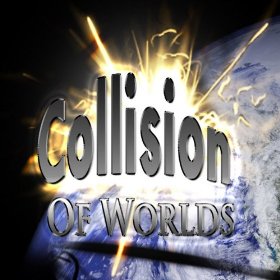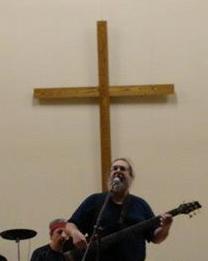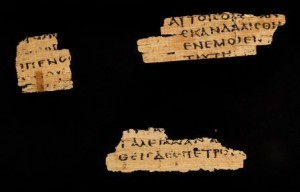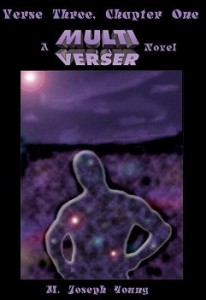This is mark Joseph “young” blog entry #74, on the subject of Another Novel.
My first novel went to print now over a decade ago; the second has been languishing, awaiting the financial situation in the publishing company that would permit to committing to printing another book. That may never happen, so with their permission I am publishing it in serialized form on the web. I already republished Verse Three, Chapter One: The First Multiverser Novel that way, and as I did it I also posted a series of “behind the writings” web log posts–the last of them, #71: Footnotes on Verse Three, Chapter One, indexing all the others and catching a lot of material from an earlier collection of behind-the-writings reflections that had been misplaced for a decade. Now the second novel, Old Verses New, the one that made it up to the point of needing to be put in publication format and then stopped, is being posted to the web site in the same serialized form, and I am again offering a set of “behind the writings” insights. This “behind the writings” look definitely contains spoilers, and perhaps in a more serious way than the previous ones, because it sometimes talks about what I was planning to do later in the book or how this book connects to events yet to come in the third (For Better or Verse). You might want to read the referenced chapters before reading this look at them, or even put off reading these insights until the book has finished. Those links to the titles will take you to the tables of contents for the books; links below (the section headings) will take you to the specific individual chapters being discussed, and there are (or will soon be) links on those pages to bring you back hopefully to the same point here.
There were numerous similar previous mark Joseph “young” web log posts covering the first novel, but rather than clutter this I’ll refer you to that last one and let you find the others from there.

History of the series, including the reason it started, the origins of character names and details, and many of the ideas, are in those earlier posts, and won’t be repeated here.
Chapter 1, Hastings 44
I had decided sometime before that I was going to introduce Derek Brown and put Slade on sabbatical for the second book; but it wasn’t until the very end of the first book that I’d decided to have Lauren and Bob together over the span. That meant Slade would be with her, and I had to find a way to verse her out. But it also meant I had the opportunity to do some backstory, to bring people up to speed. That’s where this begins.
Our story begins where we left Lauren and Bob, in the parakeet valley. When we left, winter was approaching; now it has been on them for some time. Bob is not going to be in this book beyond his interaction with Lauren at the beginning—as I mentioned in connection with the other book, with the killing of the snake his story has been told, he has become the warrior he dreamed himself to be. I knew that intuitively at this point, and needed to replace him. Of course, I really liked Bob, and so I let him cook for a bit and developed a new story for him which begins in the third book—built on fragments from his time on the djinni quest. Besides, readers missed him. But for the moment, Bob is a supporting character still present at the beginning of Lauren’s story.
One of the toughest parts of writing a series is that you know that some of your readers read the previous book or books and some did not, and you need to bring the new readers up to date on characters and events without boring the established readers. That’s what the opening paragraphs are attempting to do regarding Lauren, and indirectly Joe and the verser concept.
Chapter 2, Kondor 42
Very early in the Kondor story I decided that the first book should end with him on the early gunpowder sailing vessel version of that same Mary Piper world in which he had been on the spaceship version. It was time to continue that story. There are really two ways people try to explain their presence on the ship in these; one is the drink with the stranger, the other the kidnapping. Kondor had tried the one, I thought the other would work this time. Also, the first time he had tried to hide, and it played against him, so this time he took the bull by the horns and introduced himself right away.
The idea Bob raised in the end of the previous chapter about where Joe is “now” segues into where Joe went when he was killed by the sparrow people. It has been months for Lauren and Bob, and in a sense we’re stepping back to a moment months before, but since, as explained, time doesn’t matter, we can pick up Joe’s story from the moment he came back to life and move it forward from there.
Joe’s concern about being thought a runaway slave is part of his inherent racism—a small hint at his thoughts on the subject, but an important one.
In the age of sail, pilots steer from the aftcastle, because the rudder is in the rear and it is considerably less complicated to put the wheel there. They are reliant on navigators and deck hands to keep them informed of anything ahead, but the ocean is pretty big and they only really need to see when they are coming into port or trying to approach another vessel.
In game play, it is usually the case that players land in worlds where they know the language, but not always so. Players develop skills in multiple languages and learn tricks to communicate where they don’t know it, but I keep it simple more often than not. Somewhere in Doctor Who they suggested the conceit of a “gift of the Timelords”, that enabled anyone traveling with a Timelord to speak and understand whatever languages they encountered without thinking about it. We don’t do that, and sometimes a language barrier is part of play, but not this time.
To recount, The Mary Piper is a game world from The First Book of Worlds which was designed to illustrate the principle that you can have the same plot and character elements in entirely different settings. In the book, the “alpha” world is this one, a wooden cargo sailing vessel with simple cannon and muzzle-loaded guns, and the “beta” world is an interstellar spaceship with kinetic blasters and high-tech medicine. The two worlds work much the same, with simple cultural and technical adjustments (an iceberg becomes a comet, a whirlpool a black hole, and names like “James” and “Donald” become “Jamison” and “O’Donnell”. We’re going from the high tech version to the low tech version, and that gives Joe some advantages, because he knows some of this world already and just has to look for how it fits.
I never paid attention to the race of any of the crew until I was writing Kondor into things, and realized that he had a race issue. That meant I had to figure out who was black, not because it mattered to me but because it mattered to him. I was color blind, but I had to see the world through his eyes.
Chapter 3, Brown 1
When I started playing in playtest in the fall of 1993, my eldest son Ryan, then ten years old, joined the game shortly thereafter. In the summer of 1995 I started running a playtest game, and my second and third sons, Kyler and Tristan, were two of my five players (the other three Bill Friant, who had played D&D with both Ed and me, Dorian Mantell, who had little experience in games with us, and Chris Jones, who had played in Ed’s Multiverser game before I did and played in quite a few games in a short time). Kyler was nine and Tristan was seven. I thus had quite a bit of experience with games starring young boys, and felt it would be good to put one in the book—but not as young as that.
I owe something to my son Tristan for the Derek Brown story. He had gone to The Cask of Amontillado as his second world, and it had played out in an interesting way precisely because he was a child. I decided to try it with Derek, although it was different.
Derek Jacob Brown gets his given names from the British actor Derek Jacoby (played Cadfael in the mystery series of that name, better known for I, Claudius). The surname is from my wife’s family, as I wanted a common surname to go with the rare given names. Call it a mnemonic device; I never forgot his name. I also remembered a Doctor Who companion, Perpugilliam “Peri” Brown, who in a very funny moment introduced herself to Brian Blessed’s character as, “Perpugilliam. Of the Brown,” only to have him react as only Blessed can with a booming surprise, “Of the Brown?!” I haven’t used that, but I love it, and it contributed to the choice of name.
I am not certain why I did the horror settings for him. As he developed in my mind, I imagined a string of horror settings beginning with this one. Part of it was that I saw a potential moral in the idea of coming to grips with the horror worlds, which I eventually included. Perhaps some was due to Ed Jones’ influence. He once commented of C. S. Lewis, upon reading That Hideous Strength, that the man could have written horror; he meant that as a compliment. He also said that my Post-sympathetic Man game world was the most insidious horror scenario he had ever read, and although I had not thought of it as such before that I could thereafter see what he meant. (Even now I think perhaps I’ll bring Derek to that one of these days; it would work well for him.) I wondered whether I could write horror. I never run horror games (although I have since run some of Derek’s worlds as Multiverser worlds at conventions); I don’t know whether I can maintain the required atmosphere. But my wife said the Derek Brown stories were frightening, and if some others, at least, think so, I’ll be pleased.
Also, I needed to take a different tack, and although both Lauren’s Vampire Philadelphia and Joe’s Quest for the Vorgo were packed with undead monsters, neither of them really had a horror feel—Lauren’s was more a superhero-versus-monsters feeling (like the television version of Buffy the Vampire Slayer, perhaps), and Joe’s a comic horror film (definitely on the order of Army of Darkness).
One of the things that makes the horror work for Derek is that he expects it. He has seen “all the” horror movies, and knows the tropes, and knows that this is exactly the kind of situation that leads to some kind of horror. He can’t accept that it’s normal, because horror stories work when things seem normal.
I didn’t want everyone to go the same way; often in the game it’s a computer that gets people. A video game controller was an idea I’d recognized but never used.
I expected to need the bicycle. I think I got that from my son Ryan, who brought the lawnmower with him (it was part of his accident) when he versed out, and used it to transport his stuff. Derek was going to have a lot of stuff, and bicycle baskets would allow him to move it. A flat tire, at this point, forced him to go to the first house he found.
I was constantly mindful in the Derek stories that I needed to bring back the foreboding periodically, and had to misdirect it as often as I could. Thus Carlo is introduced as rather frightening. He is supposed to appear ominous at this point, because that’s how Derek sees him.
Derek was a risk on another level. People liked Bob Slade, and I was replacing him. I had to hope that Derek Brown would become as much liked, for entirely different reasons, as the character he seemed to be replacing.
Chapter 4, Hastings 45
The spring scene was very much improvised. I had not considered it until I started writing it. I realized that I would have to get out of winter if Lauren was to do anything dangerous. It also gave me more time for backstory, including the pyrogenesis skill, which I hope gave something of the magical nature of Lauren a bit of an airing.
I am not at all sure at what point I realized that a meadow beside a lake in a valley would be a flood plain in the spring, but it suddenly seemed obvious and gave me some excitement.
The experiment with the rocks actually pinpoints the bias curve of the world rather precisely. We know that Lauren cannot levitate herself psionically in this world although she can lift others. Levitation is a 4@8 skill, curve of 12. She uses her pyrogenesis to heat the rocks, a 7@4 skill, curve of 11. That means the curve has to be 11, to include the pyro but exclude the levitation.
In the first book it was established that Lauren had met other versers and Bob had not, which here gives me the opportunity to have Lauren explain things that readers might have gleaned from the previous book (if they read it) with a few extras that might be worth mentioning.
The guys who believe we’re in the stories or it’s an army experiment were real players in Ed’s game before I was involved. The girl was my own invention, although players in my games have included that among possible explanations for their experience.
Chapter 5, Kondor 43
I decided that Kondor’s medical background would give him an inside track on a medical job, and that I could probably do a lot more with that than with any other position. It seemed easy enough to sell.
The place names in The Mary Piper were all invented, a combination primarily of “make up a word” and “what’s a good name for a place”. Sardic was, I think, drawn from Sardis, my father’s hometown (and a city in the Asian province of the Roman Empire). Names like “Syndic” and “Durnmist” were cut from whole cloth; “New Haven” is a town in Connecticut, but made good sense as a remote port.
Again, James (like Jamison) was never any particular race/color until I used the scenario in the first novel for Kondor and started working with his race problem. Once I’d made Jamison black, it followed that in the parallel James would also be black.
Kondor’s commitment to honesty is reflected in his answer, “Nothing like this” when asked if he’d ever worked on a ship before. He had been a medic on the other Mary Piper, which was a spaceship, but despite the similarities a space ship is very different from a sailing ship.
Chapter 6, Brown 2
The story is unfolding much as it would in a game, given the age of the character; but I again recognized the need to create tension, and so started playing the game of juxtaposing Derek’s fears against actual events. We are more frightened of things here because we see them through Derek’s eyes than because there’s actually anything happening; this is the more important, because there actually is something frightening going on outside Derek’s knowledge, and we can’t see it, so we need to be clued that there is fear here.
I wanted the kitchen to have the look of something early colonial, from a time when fireplaces with chimneys were used for most of the cooking, but with the addition of a “modern” wood stove. I figure this for eighteenth century.
The details of this story are drawn, to a significant degree, from the Poe story. I checked maps and such to figure out the setting, and recognized that the town hosting the fair mentioned at the beginning of Poe is in the Alps not far from the northern border of Italy, so it was not completely unreasonable for Derek not to know in what country he was, although it was definitely the kind of question that might have gotten strange looks had he been somewhere else.
Carlo speaks English because this isn’t really Italy, it’s really a world created by the American author in which everyone speaks English.
Derek is applying horror story logic to his situation: you can’t escape once the killer has spotted you, so your best hope is to be able to defend yourself.
Chapter 7, Hastings 46
I specifically remember that the opening words “Out came the sun” were pulled from that nursery song about the spider. I hear it sung when I read it—and the following “dried up all the land” is also an echo from that song.
I have been in frigid water in the late spring, and it is very cold.
The leg warming trick is not something that anyone ever did in any game I remember, but I thought a lot about how seals and divers stay warm and figured that for short-term it should work for Lauren.
Lauren would want her disintegrator rod functional, and I wanted her to have it again eventually—but not yet. Making and repairing psionic devices are not simple skills, but she only gets as far as trying to view the molecular structure of the rod before she botches.
I had once versed out by trying to build a weapon, as Lauren had. It seemed reasonable to use fixing one as a means of getting her out again.
The botch is what is called a “psionic shock wave”, an overload of the nervous system of all creatures within a specified radius. It usually has the potential to kill anyone within ten feet, but beyond that it only wounds with decreasing force for each ten feet. Bob would probably have felt it, but he probably is not close enough for serious damage.
I needed to move Lauren out of the parakeet valley to start her next adventure, and as it happens my own character is more likely to verse out attempting to create a new skill than fighting a dangerous adversary—I’m too careful in a fight, and too bold in trying to learn things.
The dream sequence came because I wanted to move her toward the state of being awake on arrival; it fit better with the image I was trying to create for her. It also created a bit of tension at the moment, because it was difficult to know what was real here.
Chapter 8, Kondor 44
I’ll credit Doctor Who with the bit that the cook on a sailing vessel is called “the doctor”, from a Peter Davison episode. It also makes sense that the guy who runs the kitchen, where the herbs and spices are kept, also is the head of medical. Having a staff here was perhaps stretching things a bit, but not unreasonably so for the length of the voyage.
The cleansing of the food and medical areas seemed like the course a modern doctor would take faced with the normal conditions of the age; that didn’t take much thought. I had wanted to introduce Walter, counterpart to Walters, because I wanted a friend to connect Kondor to other events on the ship. I think the whirlpool event may have been rolled by the dice, but it gave me the opportunity to do the rescue, and this led to the idea of CPR, so it all flowed quite well.
The introduction of Walters’ doppelganger gave impetus to Joe leaving medical; I had not at the moment I introduced Walter considered the next step.
Square sails generally catch the wind more fully and so provide the greatest propulsion, but lateen sails—the triangular ones—provide more maneuverability, allowing one to tack more effectively. Thus in the whirlpool situation it is good to have both the power of the square sails and the maneuverability from the lateen ones to escape the current.
Handing Joe a rope made him part of the effort to save the ship, but more importantly it gave him that rope for the next problem. He has to act fast to get a strong loop around his body and get in the water before the ship has left the man behind to be sucked back into the whirlpool, so I went for the feeling that he barely made it.
I don’t think the question of whether Joe could swim had ever arisen previously, but he needed to have those skills here and there was no reason in his history that he wouldn’t.
It had to be Walter who went over, because that adds to Joe’s motivation in this scene. This is the doppelganger of a good friend from another universe, and he already feels a connection here. The idea that he might lose that before he gets it gives us the all-important cliffhanger, the moment that makes the reader want to know what happens next.
Chapter 9, Brown 3
We have probably all heard one side of a conversation on a telephone. This is like that, but that the conversants are calling to each other from separate rooms, and the eavesdropper is close enough to hear the one but not the other. Thus to him he does not know for certain that there is a conversation, only that Carlo seems to be answering someone who might not exist. I realized that if Derek could hear only one side of the conversation, the reader would be as uncertain as he whether the other side existed. Yet I could at the same time give the edge of the story behind this one, as Montresor and Fortunato are recognized coming in to the house.
In the original, Montresor had told the servants that he was going to be away overnight and expected them to remain in the house, knowing that as soon as he was well out of sight they would all rush to the annual fair; he then finds Fortunato at the fair and brings him back to the empty house to execute his plan. In my version here, the butler is the last to leave the house, and the arrival of the verser delays him long enough that the master returns with his victim, making the butler a problem. In this case, Carlo hears the jingle of the bells on Fortunato’s party hat, and so deduces that there is someone, making him more of a problem. Apart from Carlo, all the servants would testify that they never left the house and Montresor never returned, but Carlo is now a complication.
Derek is also a problem, now, because Montresor must assume he heard the conversation or spoke with Carlo after that, and so knows that he returned to the house.
I wanted Derek to have a weapon; I wasn’t sure how or when he would use it, but he was going to need it. Besides, I already knew that he was going to have to kill Montresor, so he would need a weapon for that. I wasn’t certain myself whether a butcher knife or a cleaver was a better weapon in reality, but I could better envision how to use, and thus how to describe the use of, the knife. It made no sense for him to have brought a weapon from home, but now I could add this to his equipment for future use.
There are several ways to attach legs to a table, and the better would create indentations in the table top in which the legs fit; but even in those cases, a larger table would probably also have brackets of some kind secured to the tabletop, leaving a potential gap into which the tip of a knife could be pressed. This is how I see Derek hiding the knife.
We are told that Montresor was wealthy and lost a fortune due to something done by Fortunato. He still owns the home, and I was attempting to create the appearance of the opulence of wealth here.
I didn’t want Derek to be separated from his things, so I had him bring them in; but in the end, the bicycle became the problem–he couldn’t reasonably bring that inside. I used that to my advantage, so I was pleased with it ultimately, but at this point it was something I couldn’t figure out how to fix. I eventually realized that one of the things that would move him forward in the next world was trying to find it.
There really is no likelihood to the idea that Derek would actually have heard Fortunato’s cry, but I needed the reader to know what was happening here—and since Derek has seen “every horror movie” he has probably seen some version of Cask of Amontilado from which his dreams might have pulled the classic line in reaction to the setting. The dream was an attempt to bring any reader who had not yet made the connection to the original story up to speed.
Carlo’s murder is obvious. He is thrown from the rooftop, probably after being hit, to make it appear perhaps an accident or perhaps the work of the intruder. Montresor cannot allow him to mention to anyone that the master returned to the house with someone—once Fortunato is reported missing, he will be questioned, and the universal testimony of the household must be that he left that afternoon and did not return until the next day, which they will report because they have all gone to the carnival and gotten completely drunk.
The obvious way to put Derek on alert, and so ready for Montresor, was to kill Carlo, let him know it, and not have him where he would be seen when it happened.
With Carlo’s death, the scenario turns into the horror story Derek has been anticipating.
I hope these “behind the writings” posts continue to be of interest, and perhaps some value, to those of you who have been reading the novel. If there is any positive feedback, they will continue.
[contact-form subject='[mark Joseph %26quot;young%26quot;’][contact-field label=’Name’ type=’name’ required=’1’/][contact-field label=’Email’ type=’email’ required=’1’/][contact-field label=’Website’ type=’url’/][contact-field label=’Comment: Note that this form will contact the author by e-mail; to post comments to the article, see below.’ type=’textarea’ required=’1’/][/contact-form]





